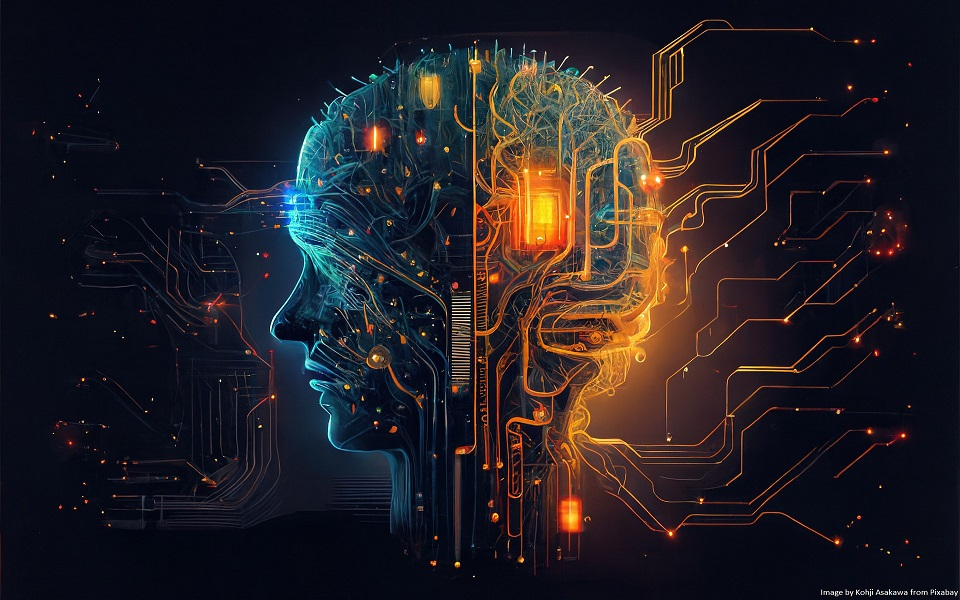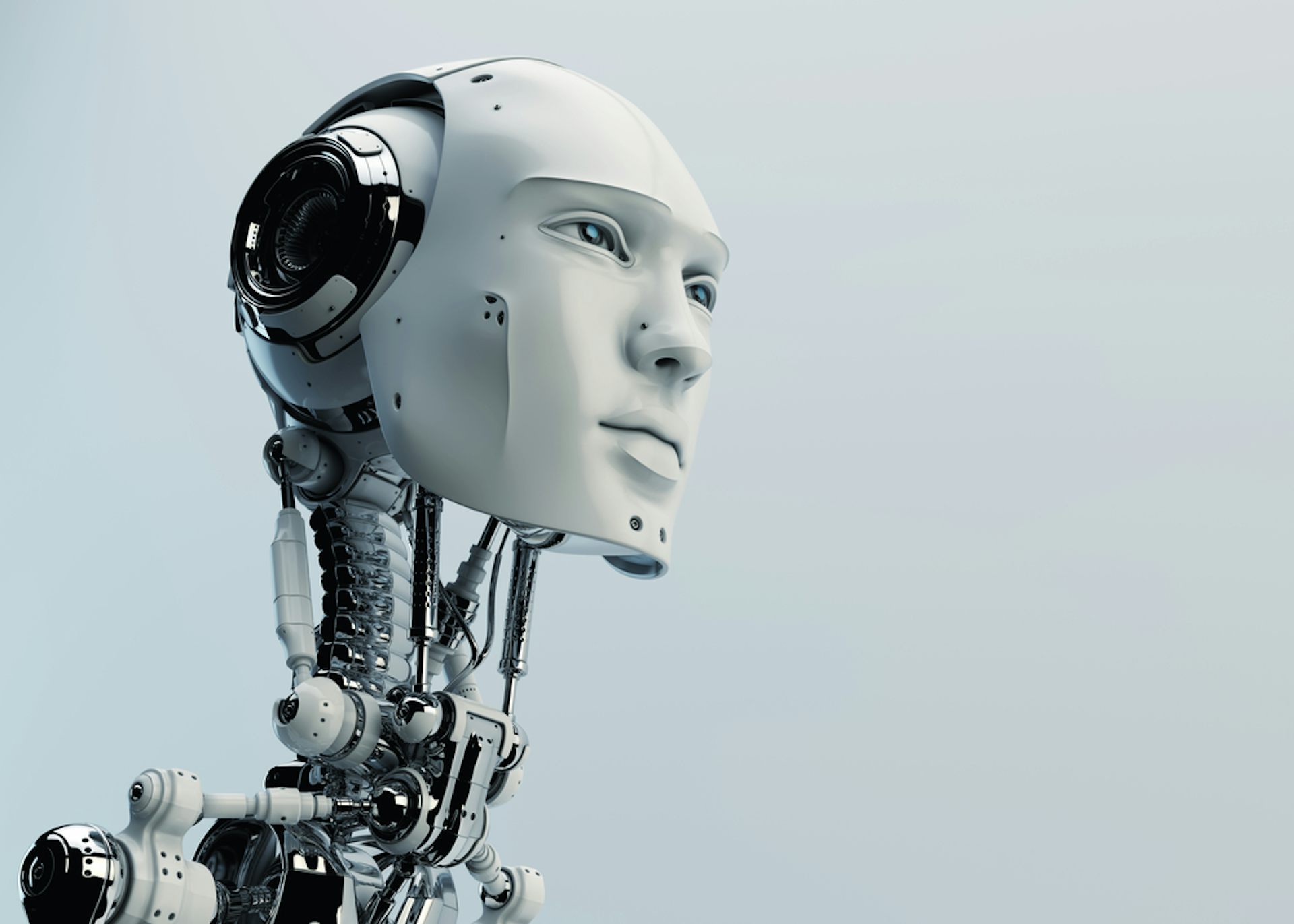We may generate income when you click links to our partners. Learn More.
What is artificial general intelligence (AGI), and why does it matter? As one of the most talked-about topics in innovation today, it has actually sparked a race among leading companies like OpenAI and Google to turn this cutting-edge idea into reality. Understanding AGI is necessary due to the fact that it has the potential to revamp markets, impact our society in extensive ways, and alter the method we communicate with innovation. Here's what you need to understand about what it might be able to do, how it may transform markets and fields, and the significant obstacles facing its advancement.
KEY TAKEAWAYS
• AGI differs from traditional AI in crucial methods that it would have the ability to believe, discover on its own, and adjust to brand-new obstacles like people unlike traditional AI, which is developed for specialized jobs and operates within a restricted scope. It needs human beings to upgrade and fine-tune capabilities. (Jump to Section).
• Once it comes true, AGI would have the ability to make remarkable advances in numerous fields, including health care, research, and finance sectors. (Jump to Section).
• Creating AGI is hard due to the research challenges that consist of technical, ethical, and social problems. Addressing these difficulties is central to keeping the safe and positive development of this innovation. (Jump to Section)
Featured Partners: Artificial Intelligence Software
Learn More
TABULATION
What is Artificial General Intelligence (AGI): A Clear Definition.
Understanding AGI vs Traditional AI.
Potential Applications of Artificial General Intelligence.
Challenges in Artificial General Intelligence Research.
3 Introductory AGI Courses to Consider.
Frequently Asked Questions (FAQs).
Bottom Line: Why Knowing What Is Artificial General Intelligence Matters.
What is Artificial General Intelligence (AGI): A Clear Definition
Artificial general intelligence, or AGI, describes a kind of expert system (AI) that can interpret, discover, and perform any cognitive task that a human can do. Unlike today's AI, which is constructed to manage particular tasks like advising products or processing data, AGI would be able to adapt to brand-new challenges and use knowledge throughout different fields. Simply put, this advanced type of AI would think and reason like a human. While AGI holds fantastic possible, it deserves keeping in mind that it is still a concept today, without any fully established systems readily available yet.
Key Capabilities of Artificial General Intelligence
AGI would have a series of capabilities that imitate human intellectual functions, so it can carry out jobs beyond the narrow focus of the current AI tools in the market. Some key abilities consist of the following:
Human-Like Reasoning: The innovation would be able to comprehend and make decisions the method people do. It would think seriously, resolve issues, and create services based on its own experiences and previous interactions, comparable to how we use past understanding to new situations.
Solving Unfamiliar Problems: Among AGI's strengths is its possible to take on brand-new problems. Unlike traditional AI, which is trained to carry out particular tasks, AGI would have the capacity to manage issues it hasn't been directly trained to fix. It might figure out how to approach a completely new obstacle, similar to humans do when faced with something we've never experienced before.
Self-Learning and Adapting: AGI could fine-tune its abilities and learn from experience, without the requirement to be manually upgraded each time. It would observe and analyze data, gain from errors, and find much better methods to finish jobs with time. This suggests AGI might adapt to brand-new circumstances and get much better at jobs by itself.
Using Knowledge Across Different Areas: AGI would have the ability to take what it learns in one area and apply it to other tasks. For example, if it learned how to fix math issues, it could utilize that knowledge to deal with obstacles in other fields, like science or service. The ability to move skills across various areas is something humans do naturally and would make the technology versatile in diverse sectors.
Understanding and Reacting To Emotions: Recognizing and responding to human feelings would likewise be within AGI's abilities. This would be essential in settings where comprehending people's feelings matters, such as healthcare, customer support, or social situations. By responding to emotions appropriately, AGI would be better equipped to work with human beings in a reliable method.
Understanding AGI vs Traditional AI

The table below supplies a snapshot of the significant distinctions between AI and conventional or narrow AI by highlighting their capabilities, flexibility, and present status.

AGI would have the ability to think, learn autonomously, and adjust to brand-new challenges like human beings. However, it is still theoretical and has actually not been recognized yet. On the other hand, conventional AI is developed for particular jobs and operates within a fixed scope. It can not change to brand-new tasks without human input.
For instance, an AGI could learn to identify medical conditions, then use that knowledge to develop customized treatment plans-and even adjust its method based on the client's progress. Additionally, it could apply this problem-solving capability to tasks in totally different fields, such as producing business techniques or advising on environmental preservation. On the other hand, standard AI, like a diagnostic tool, can only analyze medical information for particular conditions. It can not adjust to other areas or improve on its own.
Potential Applications of Artificial General Intelligence
While AGI isn't here yet, its potential applications cover numerous fields and hold terrific pledge of extreme advancements in numerous sectors. Without being restricted to specific jobs like narrow AI, AGI would be highly flexible and could use its capabilities to solve multi-disciplinary issues. It could overcome difficulties currently beyond the abilities of existing AI applications.
Transforming Healthcare
AGI would alter the video game in healthcare by identifying complex and uncommon illness with higher precision, even in cases where signs are ambiguous or overlap with numerous conditions. It might create highly personalized treatment plans by studying patient history, hereditary information, and real-time health data. In addition, AGI could accelerate drug discovery, determining possible treatments in weeks rather than years by processing huge datasets and running predictive simulations.
Advancing Scientific Research
In clinical research study, AGI would have the ability to mimic experiments, examine intricate datasets, and produce hypotheses. It could speed up developments in quantum physics, genomics, and environment science. By incorporating knowledge from different domains, the innovation might discover connections and solutions that may otherwise go unnoticed by standard AI.
Improving Industry
Organizations in the industrial field might use AGI to boost performance in real-time by handling whole supply chains. It would anticipate and fix disruptions before they occur. In production, it might oversee autonomous factories, optimizing production procedures while maintaining security and quality standards. Its capability to change to changing circumstances would make it an invaluable tool in industrial environments.
Enhancing Business Strategy
AGI might enhance organization decision-making by assessing market trends, consumer habits, and functional data to find chances and risks. In contrast to narrow AI systems, AGI would innovate services to tough organization problems, such as handling financial uncertainty or forecasting long-term market shifts. Its ability to gain from diverse sources would empower businesses to stay competitive.
Redefining Finance
In the financial sector, AGI could increase forecasting accuracy by discovering patterns in large amounts of monetary data, so financiers and institutions can make educated decisions. It would also have the ability to identify fraud in real-time by recognizing subtle abnormalities that traditional AI systems might miss out on. Additionally, AGI might develop more robust monetary models, considering complex variables and situations to alleviate threats.
Challenges in Artificial General Intelligence Research
Developing AGI is among the most enthusiastic goals in innovation, however it includes lots of troubles. These difficulties include technical, ethical, and societal locations, making AGI development a complex and multi-faceted process. Overcoming the following obstacles is tantamount to making sure security, promoting ethical requirements, and thoroughly preparing how AGI's introduction and usage will impact people, industries, wiki.vst.hs-furtwangen.de and society as a whole:
Making AGI Truly Flexible: AGI would require to handle a wide variety of issues and adapt to brand-new scenarios, simply like humans. Building a system of versatility is extremely tough due to the fact that existing AI tools are not designed to believe or learn at this level of sophistication.
Massive Computing Needs: To replicate human intelligence, AGI would require massive quantities of computing power to process details from diverse sources rapidly. Determining how to make such systems powerful and effective enough for real-world usage is a substantial challenge.
Understanding Human Intelligence: We do not completely understand how human believing works, especially complicated aspects like intuition or consciousness. Without this understanding, it's challenging to construct machines that can imitate human-like thinking.
Making AGI Safe and Ethical: AGI might potentially be misused, like to create prejudiced systems or hazardous tools like autonomous weapons. Researchers should ensure that AG is developed properly and follows stringent ethical guidelines. This is a tricky job that demands worldwide collaboration.
Keeping It Under Control: There's a danger AGI might act in methods we do not anticipate, particularly since it would have the capability to discover and change in time. Ensuring that these systems remain aligned with human worths and are safe to use is among the most significant challenges in AGI research.
Impact on Jobs and Society: If AGI comes true, it might replace tasks or cause economic inequality by benefitting some groups more than others. Preparing for these social effects is just as essential as building the innovation itself.
High Costs and Resources: Researching AGI necessitates a great deal of cash, time, and professional understanding. Not all organizations have these resources, decreasing progress and leaving smaller sized companies out of the race.
3 Introductory AGI Courses to Consider
Familiarizing yourself with AGI can offer you an one-upmanship, whether you want to advance your profession in AI or simply wish to remain notified about emerging technologies. The following initial courses can assist you get a much deeper understanding of what synthetic general intelligence is, so you can strengthen your knowledge about this promising AI development.

Artificial General Intelligence (AGI): An Initial Course on Udemy
This Udemy course provides a basic understanding of AGI, appropriate for novices without any previous experience. The course covers appropriate subjects, including the foundations of AI, the essentials of AGI, and the latest patterns in the field. It also explores the benefits, risks, and obstacles related to AGI, equipping you with insights into what the sophisticated technology can attain. The whole course consists of 15 lectures and can be finished in approximately 45 minutes. Upon completion, you will get a certificate to bolster your qualifications in the job market. This introductory course costs $24.99.
Intro to Artificial General Intelligence (AGI): Future of AI on Udemy
Udemy's initial course uses a thorough introduction of AGI for students without any technical background. It talks about the historic context and structure of AGI, the differences between narrow AI and AGI, and ethical considerations surrounding its advancement. In addition, it attends to future trends in AI and AGI, shedding light on the challenges and chances that lie ahead. Spanning one hour and 46 minutes, the course includes 39 lectures, on-demand video, and downloadable resources. It also has a dry run at the end to enhance your understanding. You will be awarded a certificate as soon as you finish the course. It is offered as part of Udemy's premium strategies, starting at $20 monthly, or as a different purchase of $49.99.
Artificial General Intelligence (AGI) on Udemy
This Udemy course brings a clear and concise introduction to the subject, with on-demand videos and 22 lectures. It elaborates on significant AGI concepts and the function of robotics in AGI development. It likewise analyzes the ethical, software application, and hardware challenges in developing AGI. The course offers tests to evaluate your understanding and a certificate of conclusion. Priced at $44.99, it is made for learners at any level, making it available and valuable for anybody who wishes to find out more about AGI.
Frequently Asked Questions (FAQs)
Achieving AGI might transform markets, improve decision-making, and lead to considerable developments in technology. However, it also raises issues about principles, task displacement, and the need for correct regulation to make sure it is established securely and responsibly.
Experts disagree on how far we are from attaining AGI. Sam Altlman of OpenAI believes in 2025, AI agents may join the workforce, eventually leading the way to AGI development. On the other hand, a survey of AI scientists puts the mean estimate around 2047. Despite rapid AI advancements, current systems are still restricted to narrow jobs and do not have the broad, flexible reasoning of humans-so AGI is likely still years away.
The idea of AGI totally changing humans is still debated. Despite the fact that it's likely that AGI will assist us by taking control of repetitive jobs, there is a possibility that it might displace certain jobs. That said, rather than entirely replacing people, AGI is expected to work together with us, managing technical obligations while we focus on tasks that require imagination and compassion. At the end of the day, the impacts of AGI will depend on how society selects to handle and incorporate it.

Bottom Line: Why Knowing What Is Artificial General Intelligence Matters
Understanding artificial basic intelligence is important because this innovation could alter markets, fix challenging issues, and change how we utilize AI. But as we start to develop AGI, we need to thoroughly deal with a number of obstacles, consisting of technical issues, ethical concerns, and its general influence on society. By discovering AGI's potential and dangers, we can work toward making certain it is developed responsibly and utilized in ways that would benefit everybody.








